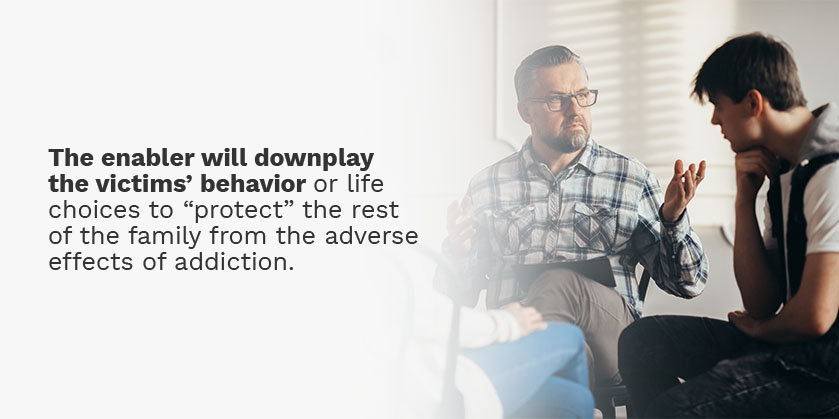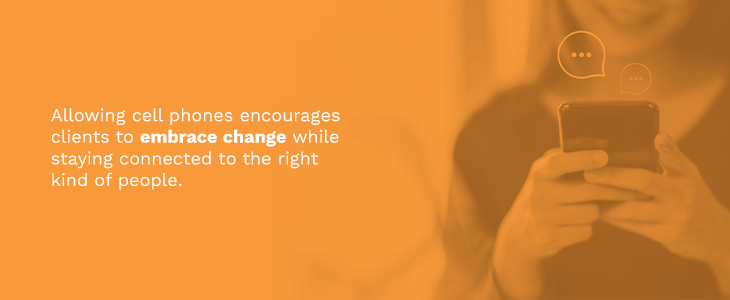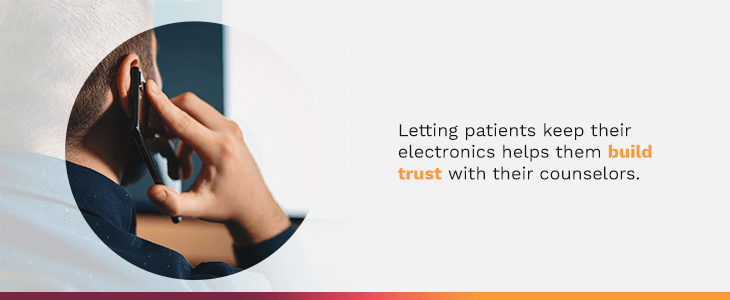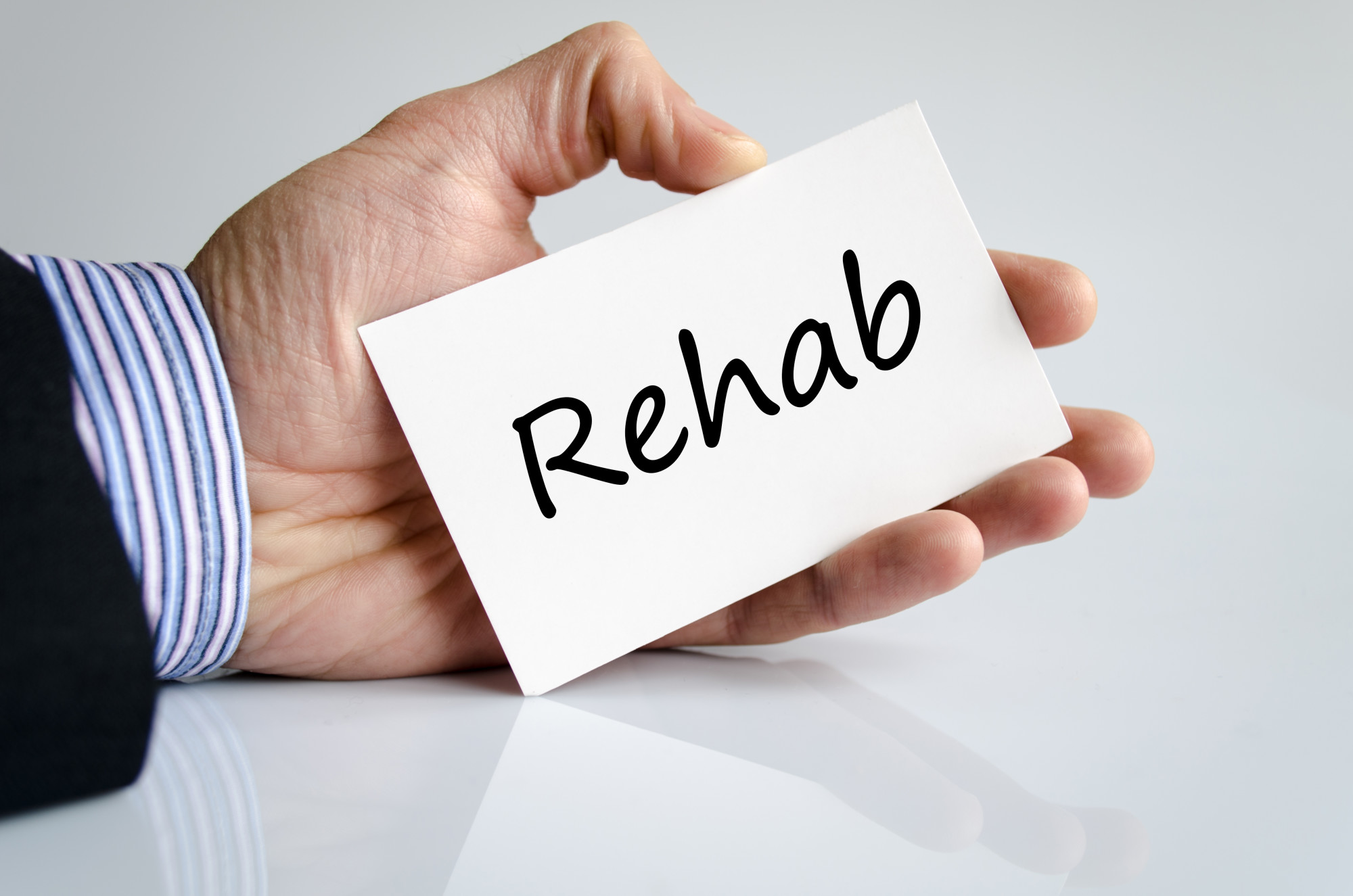Family Roles in Addiction
Family Roles in Addiction
Substance abuse is a disease that can affect an entire family. When you’re living under the same roof with someone struggling with an addiction to drugs or alcohol, you’ll navigate an unpredictable world filled with many uncertainties. You might also have trouble knowing where to turn for help.
Unique family roles can pop up in the event of addiction, which may worsen the situation. To understand how this disease manifests itself, we’ll discuss the family dynamics of addiction below and provide addiction recovery information and resources for you and your loved ones.
Victim or Addict
Family dynamics are affected by at least one victim of addiction. People struggling with substance abuse live in a constant state of chaos, and drugs may become their primary way to cope with emotional issues. Victims display negative behaviors or symptoms that might include:
- Lack of motivation
- Confusion
- Irritability, anxiety or paranoia
- Rapid or rambling speech
- Shakes, tremors or slurred speech
- Dilated pupils
- Mood swings
- Lack of personal hygiene
- Bloodshot eyes
The victim might display anger and avoidance behaviors as they find it harder to manage their mood swings. They’ll often show dependent behaviors such as manipulating or lying to supply and sustain their addiction. There are Family Roles in Addiction.
Over time, the victim will become the focal point of the family while other members attempt to deal with their behavioral choices and life changes. The victim might isolate themselves or blame other family members for their problems, negatively affecting those around them.
The Scapegoat of the Family
The scapegoat of the family is often the one who gets blamed for the family issues caused by addiction. Most commonly the middle or second oldest child, the scapegoat exhibits deviant behavior and hostility to divert attention from the victim.
The scapegoat will often lash out and voice the family’s collective anger. They’re also more likely to participate in risky behaviors, so parents focus on their punishment rather than deal with the scary and unpredictable world of addiction.
The scapegoat also distracts family members from internal blame and resentment surrounding the victim’s addiction issues. When scapegoats get older, they’ll find it harder to manage their emotions and may display avoidance behaviors by running away or acting out in violence.
The Enabler
The enabler will deny that there was ever a problem in the first place. They’ll downplay the victims’ behavior or life choices to “protect” the rest of the family from the adverse effects of addiction. They’ll convince themselves that substance abuse isn’t a real issue and make light of the situation by excusing their loved one’s behavior and fueling the addiction.
The enabler has difficulty creating boundaries with the family member who suffers from addiction. They’ll let problems go unchecked rather than deal with them straight away. While they may not realize it, the enabler can assist in the self-destruction of the victim by:
- Treating an adult victim like a child and making excuses for their behavior.
- Giving them money to pay for necessities rather than allowing them to pay for their own.
- Ignoring harmful behavior and not addressing how it’s affecting the family.
- Helping the victim obtain their substance of choice.
This role is often filled by the victim's spouse or even a child of the family. They often believe they’re helping the family or victim when in reality, their reaction creates a more significant issue by making it difficult for everyone to heal. Family Roles in Addiction.
The Hero of the Family
The hero of the family tends to be controlling and perfectionistic. They achieve many successes to give their family the illusion that all is well. Often seen as over-responsible and self-sufficient, they’ll also attempt to make decisions for the family behind closed doors.
The hero will feel like the leader of their siblings, though, over time, they'll find it challenging to manage the stress and anxiety that comes with this role. The hero might also attempt to overshadow the victim and be the center of attention, derailing recovery efforts.
The hero believes they are the only one who can solve the victim’s problem. They’ll often harbor ill will toward the victim as they attempt to establish themselves as the focal point of the family and solve family drama. The hero harms rather than helps the situation by making it more difficult for the family to work toward recovery. Family Roles in Addiction.
The Mascot
Often the youngest sibling, the mascot is the comedian of the family. They’ll typically use humor to resolve family tension, which might come from a place of fragility and a desire for approval from those around them. Employing constant humor might also result in their inability to deal with confrontation or express their emotions.
Supplying comic relief helps the mascot shield themselves from the pain associated with negative family dynamics. Fear, sadness and feelings of vulnerability plague this person as they conceal their emotions by cracking jokes and making light of family arguments. While their humor may lighten the mood, the mascot distracts the family from solving deep problems.
Due to their deep-seated issues, mascots tend to self-medicate as a coping mechanism. This can continue into adulthood and perpetuate the addiction cycle.
The Lost Child
Typically the youngest or middle child, the lost child is uninvolved in family relationships. They’ve likely never received the same level of attention as their siblings, which makes them go virtually unnoticed when there’s an addict in the family.
When this child stays lost, they learn their needs don’t matter and hiding becomes a way of life. They’re shy, withdrawn and commonly depressed for most of their childhood as they use invisibility as their defense.
The lost child often grows up feeling inadequate. They’ll blame themselves for the lack of attention they received growing up and believe that something is inherently wrong with them. This makes it challenging for them to form intimate and lasting adult relationships, and they may self-harm or become involved in abusive relationships. Like the mascot, the lost child might also turn to self-medicating as a way to cope.
If You've Noticed These Dynamics Within Your Family, We Are Here To Help
As you’ve learned, addiction significantly affects the victim and those around them. If your family is struggling with the effects of addiction, we’re here to help.
Transformations By The Gulf is a wellness center that provides substance abuse and alcohol addiction recovery services. Our residential and outpatient programs emphasize compassion, honesty and self-accountability through the path to recovery.
We understand the complexity of addiction and design custom recovery plans for each individual to help them achieve a better quality of life. We also provide family therapy to navigate you through the challenges and unpredictability of an addictive household.
To learn more about our services, contact us today.
If you or someone you know would like to know more about Transformations by the Gulf Substance Abuse Treatment Center Give us a Call 24/7 (727)498-6498
The success of a person’s recovery depends on the level of personalized treatment provided. It is important to find an addiction treatment program that works. When we say our treatment is individualized, we mean that we craft a program that is tailored to address the client’s unique physical, mental and emotional needs.
In the client’s first 24 hours with us, we’ll evaluate their current state and work to understand what challenges they need to overcome. They’ll also have an initial session with our doctor and meet with one of our licensed mental health professionals.
After the initial evaluations, we’ll design a treatment plan with the sole mission of helping the client overcome and heal from addiction. Their program will focus on things such as:
- Addressing and Identifying root causes of addiction.
- Creating a support system.
- Developing healthy stress management techniques.
- Eliminating Substance use.
- Learning how to communicate emotions effectively.
- Maintaining a healthier lifestyle.
- Repairing damaged relationships.
Our Facility is near the beach and offers a comfortable setting for substance abuse treatment and recovery.
What a Day is Like in Our Treatment Facility.
Why Transformations by the Gulf?
You can also find out more information about Transformations by the Gulf by visiting Rehabs.org
Can a Rehab Center Report My Addiction as a Crime?
Can a Rehab Center Report My Addiction as a Crime?
In short, a rehab center can't report your substance use to the police in most cases. Simply admitting to drug use isn't enough for the rehab to call the police, even if you have an existing criminal record. Whether your substance use disorder is current or in the past, a drug treatment center can't call the police if you're simply seeking drug abuse treatment.
Ultimately, jail shouldn't be a concern if you're seeking treatment for a substance use disorder. Rehabilitation facilities are focused on helping you recover from your substance use and taking you through the drug rehabilitation process — they aren't going to call the police to send you to jail for illicit substance use. Their goal is to help you recover and provide you with healthy coping skills to live an enriching, sober life.
While most cases can't be reported to law enforcement, there are a few instances where a rehab center can call the police. Continue reading to learn more about your rights as a patient, why a rehabilitation center might contact law enforcement and more.
Patient Confidentiality: Knowing Your Rights
As a patient at a rehab center, you have rights that protect your private information. You should familiarize yourself with the laws that protect your medical information to ensure you know what's being done with it. When you start treatment, a rehab center employee will give you the center's privacy and confidentiality guidelines to sign. This paperwork outlines your rights as a patient. The staff at the rehab facility must also sign these documents.
Most of the information and protections in these guidelines come from laws established to give patients more rights than they once had. The following are a few of the laws that health care providers must follow.
The Health Insurance and Portability and Accountability Act of 1996
The Health Insurance and Portability and Accountability Act of 1996 (HIPPA) was first introduced in 1996 to prevent health care providers from sharing patient information without explicit consent from the patient. The information you share with your physician or any other health care provider must remain private, which is known as doctor-patient confidentiality.
Drug treatment centers fall under "covered entities," which means they're subject to the HIPPA Privacy Rule. Medical staff at the rehab facility can't divulge your medical information to anyone, including law enforcement. The Privacy Rule also allows patients to control how their medical information is used.
Your medical information can only be shared without your consent in specific instances, including:
- Medical emergencies
- Suspicion of neglect or abuse
- Legal warrants or subpoenas
- Specific research situations
If a medical facility has to disclose your information for any reason, it can only be enough to fulfill the needs of the situation, such as disclosing medications you're taking in the event of a medical emergency. Breaking HIPPA guidelines can result in considerable legal repercussions for the treatment center. If someone in the facility divulges your information with malicious intent, they can face up to 10 years in prison.
The Confidentiality of Alcohol and Drug Abuse Patient Records
This regulation was initially instated in 1975 and revised in 1987. It states that rehab facilities can't directly or indirectly divulge information that would identify you as a current or past patient at said facility. If the facility has your explicit written consent, they would be able to share your information with certain parties — but otherwise, they must keep your information private.
If a police officer enters the facility trying to seek information about your substance use and they don't have a warrant or a subpoena, the rehab facility is not allowed to give them your information. Like HIPPA laws, if a staff member shares your medical information with your consent, the facility will face legal repercussions.
There are a few exceptions to this regulation. If there are court-ordered criminal investigations, warrants or subpoenas, your information can be shared with law enforcement. Your information can also be shared if there is suspected child abuse or neglect, a medical emergency or a program evaluation.
However, in most cases, a rehab facility can't share your information since it's legally part of their job to protect your medical records. Can a Rehab Center Report My Addiction as a Crime?
Can I Be Charged in Rehab?
Upon admittance to a drug treatment center for substance use disorder, you won't be charged for using drugs, whether you're seeking treatment for a past or current substance use. However, there are some reasons that a rehab facility might call the police.
If you were arrested in the past for a nonviolent drug offense, you might be able to go to drug court rather than jail. Drug court specifically handles drug cases for adults and juveniles. A drug court can sentence you to court-ordered rehab to reduce relapse and the chances of you committing another crime.
If you fail to show up to court-ordered rehab, the facility can call the police, and it'll be seen as a violation of your sentencing, resulting in harsher punishments.
A rehab facility can also contact law enforcement, or law enforcement can get involved, if:
- You exhibit destructive or violent behavior.
- You admit yourself into rehab to avoid an arrest for a criminal act.
- You have a warrant out for your arrest.
You can also be arrested in rehab if a staff member catches you using or possessing drugs within the facility. The facility staff keeps a careful eye out for substance use. If you're caught with drugs, you can be charged with drug possession. If you're caught with a significant amount of illicit or prescription drugs, you can be charged with possession with intent to sell, which comes with more severe legal repercussions.
If you committed a minor crime before admitting yourself into a treatment facility, law enforcement may wait until you've completed treatment to make an arrest.
If you're looking into treatment for substance use, you can rest assured that you won't be arrested in rehab simply for having a substance use disorder. The priority of treatment facilities is to treat your substance use disorder and any underlying conditions contributing to it, not to have you arrested for illicit drug use.
If you or someone you know would like to know more about Transformations by the Gulf Substance Abuse Treatment Center Give us a Call 24/7 (727)498-6498
The success of a person’s recovery depends on the level of personalized treatment provided. It is important to find an addiction treatment program that works. When we say our treatment is individualized, we mean that we craft a program that is tailored to address the client’s unique physical, mental and emotional needs.
In the client’s first 24 hours with us, we’ll evaluate their current state and work to understand what challenges they need to overcome. They’ll also have an initial session with our doctor and meet with one of our licensed mental health professionals.
After the initial evaluations, we’ll design a treatment plan with the sole mission of helping the client overcome and heal from addiction. Their program will focus on things such as:
- Addressing and Identifying root causes of addiction.
- Creating a support system.
- Developing healthy stress management techniques.
- Eliminating Substance use.
- Learning how to communicate emotions effectively.
- Maintaining a healthier lifestyle.
- Repairing damaged relationships.
You can also find out more information about Transformations by the Gulf by visiting treatmentcentsdirectory.com
Our Facility is near the beach and offers a comfortable setting for substance abuse treatment and recovery.
What a Day is Like in Our Treatment Facility.
Why Transformations by the Gulf?
Alcohol and Drug Rehabs That Allow Cell Phones
Alcohol and Drug Rehabs That Allow Cell Phones
Rehab centers are a place to go for recovery from alcohol and other drugs. Group therapy and meditation sessions combined with calming interactions make up the better part of the day. Some people may be unsure whether to enter these rehab centers because the experience is new to them, and their bodies must adjust to learning to live without chemical dependency. With so many changes all at once, entering rehab can have a bit of a learning curve.
For most people, their cell phones are the primary communication pipeline to the outside world while they're in rehab. During the first phase of treatment, however, most rehab centers won't allow cell phones. This guideline is set in place so clients can acclimate to a new environment without outside aggressors and influences making it more challenging. Below, learn more about the use of cell phones in rehab and why Transformations By The Gulf allows them.
Why We Allow Cell Phones During Treatment
Completely sheltering clients from contacting anyone outside the rehab center could hinder their recovery and stress out loved ones. Not allowing cell phones at all also creates a situation after discharge where patients can become overwhelmed. They'll be re-entering society's fast-paced lifestyle and having to manage overwhelming amounts of communication from people who were unable to talk to them for an extended period. All these things hitting them at once could trigger a relapse, which could put them right back where they started before they entered rehab.
Allowing cell phones encourages clients to embrace change while staying connected to the right kind of people. In the beginning, there needs to be some oversight of communications to ensure people who would be harmful toward recovery are not communicating with patients. That way, their experience with rehab and with being allowed to use their devices will be pleasant. Rules help establish proper and healthy usage of devices for communication and learning. Some of those rules can include:
-
- Blackout period: Upon entry into the rehab center, there will be several days when you'll have no access to your devices to help with acclimation.
- Prior assessments for usage: Before you enter the rehab center, you may be interviewed so the center's staff can learn about your phone usage needs, current daily routines and things you like to use your devices for. This assessment helps the rehab center establish individual usage parameters.
- Specific usage times: Creating particular times throughout the day when clients can use their devices gives them something to look forward to and helps them relax from the days' recovery-related stresses.
- Privacy laws and rules: Your rehab center will have strict policies it must follow for preserving client privacy and safeguarding other information about your medical history and recovery. These rules help keep your personal data safe and instill confidence that your devices will remain secure during your stay.
Benefits to Staying Connected While in Rehab
Another reason cell phones often need to be part of recovery is because society heavily relies on these devices to keep functioning. People are very connected to their devices, whether they're using a cell phone, laptop, tablet or all three. Letting patients keep their electronics helps them build trust with their counselors.
This element of trust also applies to their family life, with their relatives knowing their loved one can handle using their devices and being on the internet without contacting their drug dealer or finding ways to get alcohol. Making people give up those comforts that are not directly a part of their addiction could be just enough to make them not want to try rehab.
Allowing cell phones also lets patients periodically contact their employers to keep them updated and hopefully keep their jobs while in rehab. That way, patients can be reassured they'll have somewhere to work when they're released. Leaving rehab and not having a job waiting for you gives you too much free time and could be a potential danger.
When you get bored, your mind will wander, and you could start reminiscing about old "fun" times when you were high or drunk. For many people in recovery, their job is the most sacred aspect of their lives, and they identify themselves with it.
If you have any romantic partners, staying in touch with them poses a substantial beneficial factor, letting them have a role in your recovery. Your partner can encourage you to keep moving forward, congratulate you on your achievements and make you feel that much more remarkable that you're accomplishing these tasks and changing your lifestyle for the better.
If clients are not allowed to talk to their romantic partners, it could add to their stress and increase the strain on the whole recovery process, making it more probable that they will leave prematurely or not go through rehab at all.
Cons to Having Your Phone in Rehab
While there are plenty of positive reasons cell phones need to be allowed in rehab centers, there are some cons to allowing patients too much device usage or any usage at all. If patients stay in contact with the wrong people, this could pose a danger to them, and they may leave the program before finishing. Clients could also use their devices to contact their dealers or external people to procure drugs and alcohol to sneak into the rehab center or somewhere else on the facility grounds.
If a client makes contact with these negative people, it could trigger relapse and ruin the program before they can genuinely see all the benefits of rehab. Those potential dangers can be avoided with clear rules, security on the grounds and vigilant staff. Alcohol and Drug Rehabs That Allow Cell Phones.
Reach Out to Transformations by the Gulf Today to Get Started
If you're ready to begin bettering your life or want to seek help for a loved one, reach out to Transformations by the Gulf. People who seek rehab from us often have fantastic experiences. Our clients have lots of personal time with their counselors and attend smaller group sessions for a more intimate setting.
With many clinical services available to you, Transformations By The Gulf is ready to help you make lifestyle changes to better your future. Our services include but are not limited to boat therapy, group therapy, intensive outpatient programs and more.
Change your life for the better by joining us today! Your loved ones can enjoy your next steps in life right alongside you and congratulate you on your successes. Start your journey to recovery and contact Transformations By The Gulf to fill out an admissions form.
If you or someone you know would like to know more about Transformations by the Gulf Substance Abuse Treatment Center Give us a Call 24/7 (727)498-6498
The success of a person’s recovery depends on the level of personalized treatment provided. It is important to find an addiction treatment program that works. When we say our treatment is individualized, we mean that we craft a program that is tailored to address the client’s unique physical, mental and emotional needs.
In the client’s first 24 hours with us, we’ll evaluate their current state and work to understand what challenges they need to overcome. They’ll also have an initial session with our doctor and meet with one of our licensed mental health professionals.
After the initial evaluations, we’ll design a treatment plan with the sole mission of helping the client overcome and heal from addiction. Their program will focus on things such as:
- Addressing and Identifying root causes of addiction.
- Creating a support system.
- Developing healthy stress management techniques.
- Eliminating Substance use.
- Learning how to communicate emotions effectively.
- Maintaining a healthier lifestyle.
- Repairing damaged relationships.
You can also find out more information about Transformations by the Gulf by visiting RehabNow.org.
Our Facility is near the beach and offers a comfortable setting for substance abuse treatment and recovery.
What a Day is Like in Our Treatment Facility.
Why Transformations by the Gulf?
Benefits of an Intensive Outpatient Program for Addiction
Benefits of an Intensive Outpatient Program for Addiction
What if your best wasn't good enough when it comes to addiction?
With drug addiction, many people think that they can make it through this struggle alone. Or if someone else is suffering, a person may think that all they need is a friendly support network.
The truth is that there is no replacement for actual drug rehabilitation. And with Intensive Outpatient Programs, the road to recovery is faster than ever before.
Wondering what the benefits of such a program are? Keep reading to discover the answer!
What Are Intensive Outpatient Programs?
We have put together the definitive guide to how these programs can help those struggling with drug addiction. First, though, we must define what intensive outpatient programs really are.
In traditional drug rehab, a patient may have to stay within a facility for a certain period of time. This helps medical professionals both monitor their condition and facilitate their needs.
With an outpatient program, no stay is required. Instead, patients attend multiple sessions over a period of time to deal with their addiction as well as any co-occurring disorders.
Many treatment plans start out with multiple sessions each week (sometimes even one a day), with the number of sessions winding down as the patient recovers.
Now that you know more about what these sessions are, it's time to learn more about the benefits of such a program.
More Affordable
Benefits of an Intensive Outpatient Program for Addiction. There are many different benefits to these outpatient treatment programs. One of the biggest benefits is that they are more affordable.
When it comes to rehab, the only real choices are inpatient and outpatient care. Simply put, inpatient care comes with a much higher price tag.
Inpatient care effectively includes room and board for a patient over a period of weeks or even months. Throw in the cost of medical care and medication and you may end up with a truly frightening bill.
With outpatient care, costs are lower all around. And medical professionals can help develop a treatment plan that takes your budget into consideration.
Access to Support Network
Like we said before, the friends and loved ones of an addict often try to stage an intervention (or two) before seeking professional help. It's easy to develop the idea that a patient must choose help from only one group or another.
However, the flexibility of outpatient care means that a patient still has the same level of access to their support network. While they receive one kind of support within the network, they receive another kind altogether from their friends and family.
Ultimately, recovering from addiction is a long road with many different paths. Outpatient programs are beneficial because they keep every path open while still providing quality care and support.
Open Schedule
Some patients struggling with addiction have a good reason to resist inpatient care. Being tucked away in a rehabilitation center for weeks or months may completely disrupt everything from their home life to their full-time job!
Outpatient programs offer a relatively open schedule for patients. This lets them attain the care they need while still letting them attend to private and professional matters.
This open schedule also lets patients be a bit more discrete about their care. They will not have to disclose their treatment plan to a boss or coworker as they would in the event of inpatient care.
Structured Care
Patients and family alike may worry that outpatient care is somehow inferior to inpatient care. The truth of the matter is that outpatient care provides a higher level of structured care than inpatient care.
With outpatient care, patients help develop a treatment plan that fully meets their needs. As we noted before, this may include meeting with a professional 7 days a week.
Under this system, a patient gets the exact level of care they need exactly when they need it. And a variety of different therapy styles are available to suit various patients and their differing needs.
Extended Network
The scariest thing about addiction is that it never fully goes away. Instead, it is a problem that patients will have to deal with long after their last session has ended.
However, no one should have to struggle alone. And outpatient programs are great because they help patients develop an extended support network that they can call on for help over the years.
Whether it's medical professionals or fellow patients, the members of this network can help patients in their darkest moments. With their help, patients can find their way back into the light.
Different Kinds of Therapy
The outpatient program professionals understand that there is no one solution that fits every problem. That's why they offer a wide variety of therapy options.
Individualized therapy provides a great opportunity for a counselor to learn the nature of the patient's issue and develop a custom treatment plan. It also provides an open environment for the patient to voice their questions and concerns about the process.
Family therapy options help offer "the best of both worlds" to patients. Such sessions allow family members to become part of the healing process, all while providing a powerful incentive for the patient's recovery.
Some programs even offer holistic therapy. This allows patients to discover how outlets such as art and yoga can help them obtain peace of mind and body.
Finally, group therapy options help patients understand that they are not alone. And such sessions form the backbone of the patient's support network, allowing them to meet new allies and friends on their journey.
Customized Treatment
When you or someone you love is suffering, you don't want them to receive just any kind of treatment. Instead, you want them to get treatment tailored to their specific lifestyle and needs. With Intensive Outpatient Programs, patients can receive the kind of customized treatment plan they truly deserve.
The Next Few Steps
Now you know about the power of Intensive Outpatient Programs. But do you know who offers the very best in care and comfort?
At Transformations By the Gulf, we help patients conquer addiction and get their lives back. To find out more or schedule an appointment, contact us today!
Seeking Treatment with Transformations by the Gulf?
If you or a loved one needs treatment and rehabilitation for substance use, Transformations by the Gulf can help. Benefits of an Intensive Outpatient Program for Addiction.
Transformations by the Gulf offers individualistic and holistic recovery services. We designed our inpatient and outpatient programs to treat individuals based on biological, psychological, familial and social needs.
Our residential homes and treatment facilities are near the beach and offer a comfortable setting for rehabilitation. If you or a loved one needs help, contact Transformations by the Gulf to learn more about our recovery services.
If you are ready to start planning your treatment process, give us a call. (727)498-6498
What a Day is Like in Our Treatment Facility.
Why Transformations by the Gulf?









